Director General
Statement by the Director General
 It is a pleasure to share with you these examples of the research for development that CIP scientists are undertaking on behalf of poor people around the world. 2017 included important achievements in our work to conserve and study root and tuber biodiversity and to tap the power of those genetic resources to improve food security, incomes and farm resilience for the benefit of men, women and youth in Africa, Asia and Latin America.
It is a pleasure to share with you these examples of the research for development that CIP scientists are undertaking on behalf of poor people around the world. 2017 included important achievements in our work to conserve and study root and tuber biodiversity and to tap the power of those genetic resources to improve food security, incomes and farm resilience for the benefit of men, women and youth in Africa, Asia and Latin America.
CIP scientists are involved in groundbreaking research to deepen our understanding of potato and sweetpotato and develop innovations to improve the capacity of farmers to produce more nutritious food while adapting to climate change. Diagnostic tools to detect sweetpotato viruses and a biotech potato variety that is highly resistant to late blight have become a reality. Further downstream, CIP and partners are deploying technologies and practices that we have developed and validated: from climate resilient potato and sweetpotato varieties to seed system innovations to value chain approaches that create income generating opportunities.
The CIP Biodiversity Center, or Genebank, safeguards some of the world’s most important collections of potato, sweetpotato and Andean roots and tubers – as in vitro germplasm, seeds and herbarium specimens. That genetic diversity, held in trust for humanity, is the foundation of much of our work. CIP is well respected as the leading center of excellence in cryopreservation, and we are grateful to Germany’s Federal Ministry for Economic Cooperation and Development/GIZ and The Global Crop Diversity Trust for funding the expansion of our Genebank’s cryopreservation lab and herbarium.
CIP’s promotion of orange-fleshed sweetpotato (OFSP) to improve food security and reduce vitamin A deficiency – which causes child blindness and other afflictions across the developing world – continues at an impressive pace. By December of 2017, we had reached 4.5 million households across Africa with this nutritious biofortified crop, and also increased its cultivation in Asia. This has been possible thanks to a broad coalition of partners and the generous support of various funders. Enhancing the breeding of improved sweetpotato varieties, expanding the supply of quality planting material, and creating new value chains is accelerating the scaling of vitamin A-rich OFSP.
We are likewise harnessing the power of the potato to improve food security and livelihoods. This includes the ongoing evaluation of biofortified potato varieties with elevated levels of iron and zinc, an initiative to expand the production and dissemination of quality seed potatoes in Africa, and the promotion of early-maturing, climate-smart varieties to strengthen food security and improve incomes in Asia.
2017 was a very significant year for CIP in China as we opened and began operating our state-of-the-art research facility in Yanqing. We are extremely grateful to the Chinese government for all they have done to make this possible.
CIP is the lead center coordinating the CGIAR Research Program on Roots, Tubers and Bananas (RTB), which facilitates cross-crop learning and innovation in areas that include seed systems, gender responsive crop breeding, and taking technologies to scale. This collaboration, which benefits CIP and partners alike, has been complemented by multi-crop initiatives such as Building Nutritious Food Baskets, in Africa, and FoodSTART+ in Asia. These and other collaborations are helping us achieve our mission of food security, well-being and gender equity for poor people in root and tuber food systems across the developing world.

